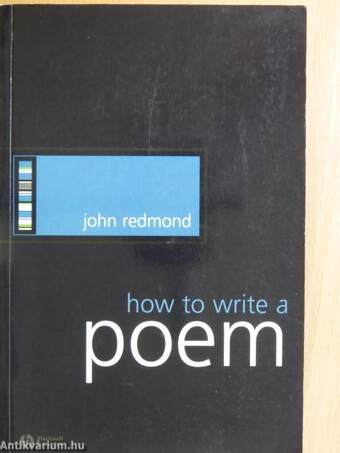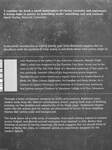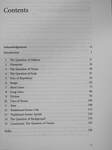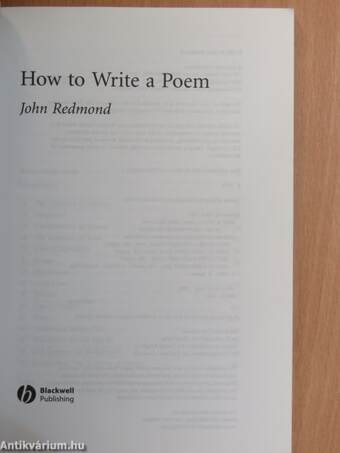1.116.661
kiadvánnyal nyújtjuk Magyarország legnagyobb antikvár könyv-kínálatát
How to Write a Poem
| Kiadó: | Blackwell Publishing |
|---|---|
| Kiadás helye: | Malden |
| Kiadás éve: | |
| Kötés típusa: | Ragasztott papírkötés |
| Oldalszám: | 154 oldal |
| Sorozatcím: | How to Study Literature |
| Kötetszám: | |
| Nyelv: | Angol |
| Méret: | 23 cm x 15 cm |
| ISBN: | 1-4051-2480-6 |
naponta értesítjük a beérkező friss
kiadványokról
naponta értesítjük a beérkező friss
kiadványokról
Fülszöveg
'I consider the book a small masterpiece of clarity, economy and experience. It brings light to poetry as something made: something real and realised.'
David Morley, Warwick University
In this lively introduction to writing poetry, poet John Redmond suggests that we should set aside the question of what poetiy is and think about what poetry might be.
IJohn Redmond is the author of one collection of poems, Thumb's Width (2001), which was longlisted for the Guardian First Book Award, and he features as one of'The New Irish Poets' in a Bloodaxe anthology of that name. Ile was previously Assistant Editor of the long-running poetry magazine '1 humbscrew, and writes reviews on a regular basis for the London Review of Bdoks, the 'Jimes l.iterary Supplement, the Guardian and Poetry Review. I le is Lecturer in Creative Writing at the University of Liverpool and, previously, was Visiting Assistant Professor at Macalester College in St Paul, Minnesota.
Through a series of chapters... Tovább
Fülszöveg
'I consider the book a small masterpiece of clarity, economy and experience. It brings light to poetry as something made: something real and realised.'
David Morley, Warwick University
In this lively introduction to writing poetry, poet John Redmond suggests that we should set aside the question of what poetiy is and think about what poetry might be.
IJohn Redmond is the author of one collection of poems, Thumb's Width (2001), which was longlisted for the Guardian First Book Award, and he features as one of'The New Irish Poets' in a Bloodaxe anthology of that name. Ile was previously Assistant Editor of the long-running poetry magazine '1 humbscrew, and writes reviews on a regular basis for the London Review of Bdoks, the 'Jimes l.iterary Supplement, the Guardian and Poetry Review. I le is Lecturer in Creative Writing at the University of Liverpool and, previously, was Visiting Assistant Professor at Macalester College in St Paul, Minnesota.
Through a series of chapters designed as useful provocations, Redmond steers readers away from the 'default contemporary poem', urging fresh ways of thinking, insisting on 'the promise and opportunity of the blank page'. Traditional chapter topics like the sestina and the sonnet are abandoned in favour of more inspiring themes like variety, scale and background.
The book draws on a wide array of examples, from sixth-century Ireland to contemporary Poland, and diverse cultural analogies from baseball to film. Rather than thinking of poems as having meanings, the book suggests that we should think of them as being like plays, or computer games, as experiences designed for the. reader's benefit. Vissza
John Redmond
John Redmond műveinek az Antikvarium.hu-n kapható vagy előjegyezhető listáját itt tekintheti meg: John Redmond könyvek, művekMegvásárolható példányok
Nincs megvásárolható példány
A könyv összes megrendelhető példánya elfogyott. Ha kívánja, előjegyezheti a könyvet, és amint a könyv egy újabb példánya elérhető lesz, értesítjük.






